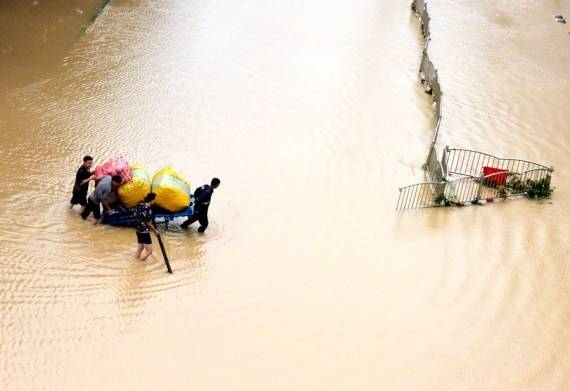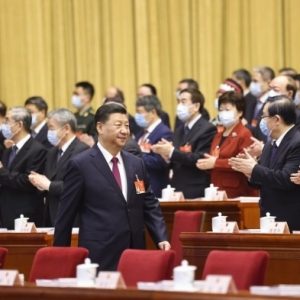In Xinjiang’s northwest, officials warned that wheat harvests could be damaged by high heat and flooding…reports Asian Lite News
Amid extreme weather shocks, China has been facing floods and strokes of heat at the same time. While several provinces receive heavy downpours affecting the crops, some have come under the grip of extreme heat, reported The New York Times.
Making sure China can feed its enormous population is a national responsibility according to the country’s President Xi Jinping, however, unexpected weather events have hampered wheat harvests and jeopardised pig and fish farming. Excessive heat recently killed fish in rice paddies in the Guangxi Province of southern China and hundreds of pigs at a farm in the eastern city of Nantong. Pigs were experiencing heat stroke while being transported in a truck, so the city of Tianjin’s fire department was called to splash water on them, New York Times reported citing the local reports.
In Xinjiang’s northwest, officials warned that wheat harvests could be damaged by high heat and flooding.
Meanwhile, in central China, the downpour was delayed and came quite late in May. Emergency teams were dispatched by the government to try to save as much of the harvest as they could when wheat kernels turned black in the rain and were unfit for human consumption.
The exceptionally strong rainfall highlighted the hazards that climatic shocks offer to President Xi Jinping’s goal for China to become more self-reliant in its food supply. According to local officials, it was the greatest disruption to the wheat harvest in a decade, the New York Times reported.
Although the country has not faced food price inflation at the same levels as other developed nations, policymakers are worried about how susceptible its food supply is to external shocks.
China’s government released pork from its strategic stockpiles to stabilise prices last summer when prices for fruit, vegetables, and pig all rose sharply, according to the New York Times. Following that, Chinese authorities reaffirmed their plea to give food security first priority.
After the government put a harsh lockdown on Shanghai, a city of 25 million people, to stop the coronavirus’s spread, food shortages last year turned into a significant source of unrest in China. Videos circulating on social media showed locals struggling for food in the aisles of supermarkets and on the streets.
During the subsequent statewide demonstrations against China’s “zero Covid” measures, protesters chanted, “We want food, not Covid tests.” (ANI)













